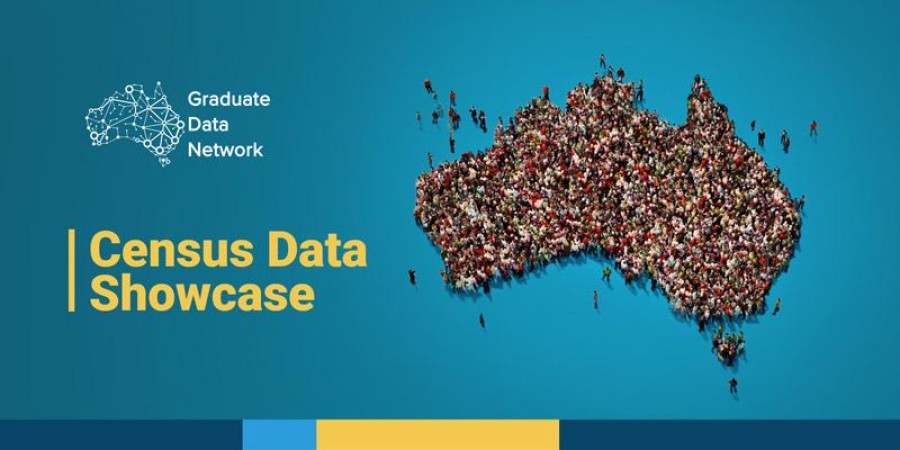
The recent Census Data Showcase event hosted by the Graduate Data Network provided an opportunity for graduates to hear from data experts about how data from the Australian Census has helped drive positive policy outcomes for all Australians.
The showcase was presented by Tracey Chester and Kyle McLean from the Australian Bureau of Statistics (ABS), Scott Clouder from The Department of Industry, Science, Energy and Resources (DISER), and Joshua Ross from the Department of Health (DoH).
Tracey described how the Australian Census provides invaluable data to inform innovative government responses to future planning challenges.
‘Census data plays a critical role in improving Australia’s economic and social infrastructure… informing many important decisions around transport, school, healthcare infrastructure and business at the community and national level.’
Innovation is a crucial part of the data collection process for the ABS. The new online format of the Census has improved data quality, reducing user errors and introducing targeted supplementary questions that provides the ABS with detailed information to support data classification and coding.
For the Department of Health, Census data provides additional insights into health workforce data. Census data is used to ‘inform reporting of medical practitioners, where they provide services and demographics of providers’, Joshua explained when outlining how data leads to better health outcomes for all Australians.
One major health outcome enabled by Census data was the creation of the Health Distribution and Supply Utilisation Patterns and Planning Tool (HeaDS UPP).
Joshua explained the Department of Health developed HeaDS UPP to combine health data and publicly released Census data into an innovative dashboard to help inform policy development as well as government response.
At DISER, Census data provides crucial information to assist in mapping the unique industry and demographic profile of each electorate.
Scott described how Census data provides a snapshot of community characteristics and facilitates policy design based on meeting community needs.
‘Census data is so helpful in really colouring in those pictures when we are trying to understand demographic impacts on policy or trying to recommend policy decisions.’
Census data also supports policy development across the public service and strengthens collaboration between government agencies.
The Multi-Agency Data Integration Project (MADIP) is one example of how the ABS has incorporated Census data into initiatives to improve collaborative approaches to policy development.
MADIP was activated in 2015 as a research data asset combining data from six government agencies with the aims of enhancing social policy.
Kyle explained how MADIP facilitates multi-agency data projects by providing a data platform to combine ‘information on healthcare, government payments, and income and tax employment and population demographics.’
The event was part of the Graduate Data Network’s ongoing initiative to build data literacy and capability within public service graduates.
Contact the Graduate Data Network for access to the recording or presentation of this virtual event.
